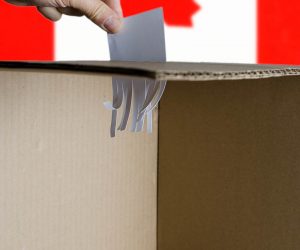 On April 8, 2024, stage one, week three of the Public Inquiry into Foreign Interference in Federal Electoral Process and Democratic Institutions (The Commission) began. The three days of hearings featured testimonies provided by senior public servants, parliamentary advisors, Ministers, and the Prime Ministers.
On April 8, 2024, stage one, week three of the Public Inquiry into Foreign Interference in Federal Electoral Process and Democratic Institutions (The Commission) began. The three days of hearings featured testimonies provided by senior public servants, parliamentary advisors, Ministers, and the Prime Ministers.
Senior public servants are invaluable during “writ periods”.
During the thirty-seven to fifty-one days prior to the polling day, the “writ” period, government dissolves and prepares for an upcoming election. During this period, Ministers stop getting regular intelligence briefings, and are replaced by Deputy Ministers: senior members of the public service. These and other senior public servants will receive broad information from agencies and departments to deal with everything apart from urgent matters. However, they do not have formal authority and rather coordinate operations to ensure for a functioning government.
All Westminster democracies have similar rules around their “writ”, and it is also when Canada is most vulnerable to the actions of foreign interference because of how easily actions may get politicized, despite how senior public servants are non-partisan. It is a period that makes Canada quite susceptible to disruption and chaos as it complicates how the government functions, and there are additionally aspects that many Canadians may be unaware of.
Parliamentary advisors are extensions of the Prime Minister.
There were four parliamentary advisors that provided testimonies, primarily on the flow of communication that occurred through them and to the Prime Minister. This included everything from non-urgent matters to matters related to national security. They noted how the process for receiving national security and intelligence briefings had evolved over time and today’s briefings had moved away from paper products, although reading was possible in certain places.
As it related to the briefings, references were made to issues around the consistency of past briefings and the importance of being able to gage the accuracy of intelligence. Any intelligence that was not 100% accurate or certain would need to be highlighted as such.
The parliamentary advisers also stated how the documents submitted to The Commission did not look familiar, but two of the advisers took their own notes for some of those meetings. They also mentioned not being aware that as many as eleven candidate ridings were potentially impacted by foreign interference until the reports surfaced in the media. There was reference to an intercepted call that occurred between an MP and a consular official in a foreign language, and that there may have been complications with the English translation.
The main issues dealt with had to do with key points of national security and intelligence communications not always being received by advisors and advisors not being able to take notes during top secret meetings. It was also suggested that the architecture around national security and intelligence matters needed to evolve and develop new mechanisms. Although there was a desire to declassify information to address the lack of credibility of the media reports, it was not an option for national security reasons.
Most importantly, a Prime Minister’s ability to display good judgement comes down to their parliamentary advisors, and it is important for these advisors to never take anything simply at face value and inquire about them like the Prime Minister would if he or she was getting them directly.
Different Ministerial offices that are in the fight against foreign interference.
Current and former Ministers of different departments also provided testimony on foreign interference and how the different ministries were positioned to handle matters related to foreign interference.
The former Minister of Democratic Institutions spoke on how the 2016 U.S. election had helped show governmental stakeholders in Canada lacked the necessary systems in place to combat foreign interference in its elections. This inadequacy became even more important after seeing the fallout from Brexit and the Macron leaks. Additionally, there was also an acknowledgement that it was likely that every election Canada has had, since Confederation onward, likely had foreign interference in some form, and that something needed to be done to strengthen Canada’s institutions.
As a result, different working groups were created and other stakeholders went on to take their own actions, including the RCMP, which had gone on to create its own cyber and public safety systems. There was also a realization that any suggestions and comments that would be made in the event of foreign interference would have an impact on an election outcome and cause disruption. For this reason, the threshold for making public remarks on the integrity of the elections process was set very high and context specific. During this process, the Canadian Security Establishment (CSE) offered to provide technical assessment of internal party systems, but all of the political parties refused this offer.
Both the current and former Minsters of Public Safety spoke on their role as overseeing all matters related to public safety and how that office intersected many other agencies and departments. Minsters of Public Safety receive the highest security screening and have unfettered access to all top-secret information and intelligence coming from international partners. They were able to outline specific priorities including better protecting critical infrastructure, educational institutions, and research facilities. The most common challenge cited was distinguishing between diplomatic influence and foreign interference, along with the challenge to address chaos, mischief, and division aimed to create social division but not directly related to elections, and having social platforms that did not cooperate with governmental stakeholders.
In addition, a news article noting a judicial warrant was not approved for months was debunked by the former Minister of Public Safety, who noted that the specific warrant in question was signed three hours from when it was received.
The reality of being Prime Minister.
The Prime Minister is constantly receiving briefings for various matters. As it relates to national security threats, these briefings occur on a regular basis, often through highly trusted parliamentary advisors, but sometimes directly with national security and intelligence leaders. One of the challenges in this stems from the requirement of a Prime Minister having to travel, whether across Canada or around the world, and how these briefings need to occur in a secure environment.
When information about national security is conveyed to the Prime Minister, such briefs are flowing conversations, not bullet point lists, and documents are never seen. What tends to complicate such conversations is that they will often include information that is not entirely certain. Such information is problematic because actions can not be taken on information that may prove to be inaccurate. With regard to leaks that arise in the news, the Prime Minister will often be requested to not make any comments or respond to news leaks. The inability to make corrections on the record is something of a forced silence, even when the news reports may be largely inaccurate.
A Prime Minister and the ruling party do not have forensic capacities or policing powers to act on information, and different agencies and departments are relied upon to make suggestions and recommendations on situations that may arise as they relate to their mandates. As it pertains to the 43rd and 44th general elections, no suggestions were made by any agency or department on actions that might have needed to be taken as it related to foreign interference.
Westminster democracies. The flow of information. And understanding different thresholds.
From Stage One of The Commission’s inquiry into foreign interference, the big three challenges that Commissioner Marie-Josée Hogue will need to opine on are likely to stem from agencies and departments sometimes being restricted from being able to act on certain matters due to narrow mandates, a total absence of legislation related to digital platforms and how they operate within Canada’s national domain, and the inconsistent flow of communication related to national security and intelligence information. Additionally, the issue of defining what constitutes as meeting the necessary threshold for the government to comment about foreign interference during an election is another challenge that will require the Commissioner’s assistance.
Prior to the 2015 Federal Election, parliamentarians of all parties did not have the ability to examine top secret materials, compliance, or track operations and other matters related to national security. As a result, the following years resulted in the creation of different bodies including National Security and Intelligence Committee of Parliamentarians (NSICOP), National Security and Intelligence Review Agency (NSIRA), and Security and Intelligence Threats to Elections Task Force (SITE TF). Even the role of a National Security Advisor (NSA) was expanded to a National Security and Intelligence Advisor (NSIA), to account for the importance of access to intelligence.
During the G7 meetings in Charlevoix, Quebec in 2018, leaders worked to establish a rapid response mechanism that focused on addressing the issues of foreign threats by building knowledge and capacity to counter them and to develop data analytic tools to identify them quickly. As a result, much more is now known around foreign interference than was possible prior to 2015.
Stage II of the Public Inquiry into Foreign Interference in Federal Electoral Process and Democratic Institutions will commence in the Fall of 2024.


